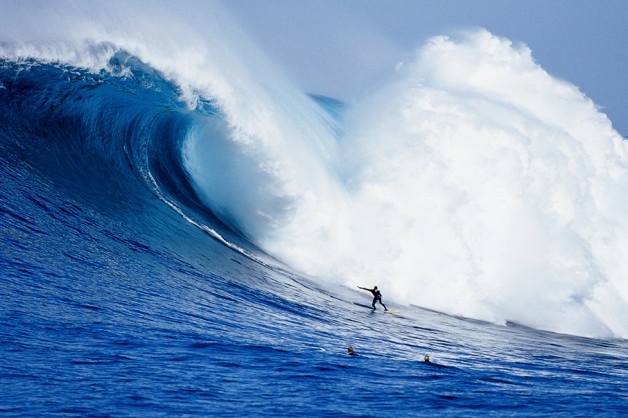Surfers and Pharisees—what could they possibly have in common?
Maybe they’re not so dissimilar. Just as Pharisees jockeyed for positions of power in the synagogues, surfers can be fiercely territorial of their local spots. Gossip over so-and-so’s reputation has its place in both Jerusalem and Oahu. Like surfers, Pharisees are also more interested in interpreting the weather than the Spirit, as Jesus reminded them: “You hypocrites! You know how to interpret the appearance of earth and sky; but why do you not know how to interpret the present time?” (Lk 12:56).
Sometimes Pharisees can behave like stereotypical surfers. After the Ascension, when the apostles are arrested for preaching in the Temple (Acts 5:17ff.) a Pharisee named Gamaliel—the teacher of St. Paul—raises his voice and talks the council down from condemning them. I paraphrase: “Whoa guys… they’re not hurting anyone. Let’s just leave them alone and see what happens, okay?”
Despite these similarities I’d like to point out a difference between the two. Pharisees, when before the face of God, fought desperately to maintain control, to play God in their lives. Given the gift of the covenant, they packaged it as a recipe for holiness with all their rules and regulations. This is why Jesus calls these weathermen “hypocrites”: they were given the gifts of God but they did not know how to interpret them. They were shown love and mercy, but they did not show the same to others.
Those who witnessed firsthand the words and deeds of Jesus should have realized deep down, “I cannot be God anymore.” This response is one of humility, which is precisely the fruit that surfing bestows. Look up “big wave surfing” if you need proof of this. On shore, surfers might be as selfish and egotistical as adolescents, but in the water they become as happy as children. The unique joy on their faces cannot be found anywhere else in the sporting world. For surfing is not a game, not something you set out to win by defeating an opponent: it is a gift or, on a particularly good day, a whole set of gifts to be enjoyed. In the world of water no one is a Creator, one is merely a cooperator with what God happens to stir up and send to the patient and persevering. Against the modern cult of control and technological manipulation, surfing remains a reversion to those happier days of man at play in the world.
Yet are not non-surfing critics right in saying that too great an interest in riding waves borders on nature worship? Don’t all its adherents turn into doped-out, pacifist surfer “bros” with little to contribute to society? First-century Palestine might have rejected and killed the Christ, but in twenty-first-century Malibu he would have been merely ignored and mildly tolerated.
While stereotypes have some truth, they often miss the mark. Perhaps the most unrecognized aspect of surfing is that it’s difficult. Surfers might incline towards pacifism and the Pacific, but they are by no means passive! It takes years to learn and continued commitment to stay in “paddling shape.” And if you hang around surfers long enough, you’ll soon realize they’re comprised of more than just community college dropouts. I have known doctors, lawyers, college professors, IT technicians, dads and their kids, and even Catholic priests who set the alarm to 4 a.m. when good surf is forecasted. Just this past week tropical storm Andrea brought waves to the East Coast, and at New York’s Rockaway Beach men of all trades were out at dawn catching waves, only to return after a few hours to rebuilding their houses still damaged from last year’s hurricane. Others even use surfing as a platform for mission work and spreading the Gospel.
Surfing doesn’t have to become a spirituality of its own. It is a form of leisure, and one that instills much humility and joy, creating an openness to God the maker and giver of waves and weather. “Waves without create waves of wonder within,” says philosopher and surfer Peter Kreeft. It’s no wonder that Gamaliel’s finest student became the great St. Paul, apostle to the nations. If more had studied at the feet of this first-century surfer of sorts, maybe, just maybe they would have been more inclined to recognize the Lord Jesus, that great and perfect “wave” that was arriving and breaking upon the world.
✠
Image: Surfing on Cortes Bank outside of San Diego, California







